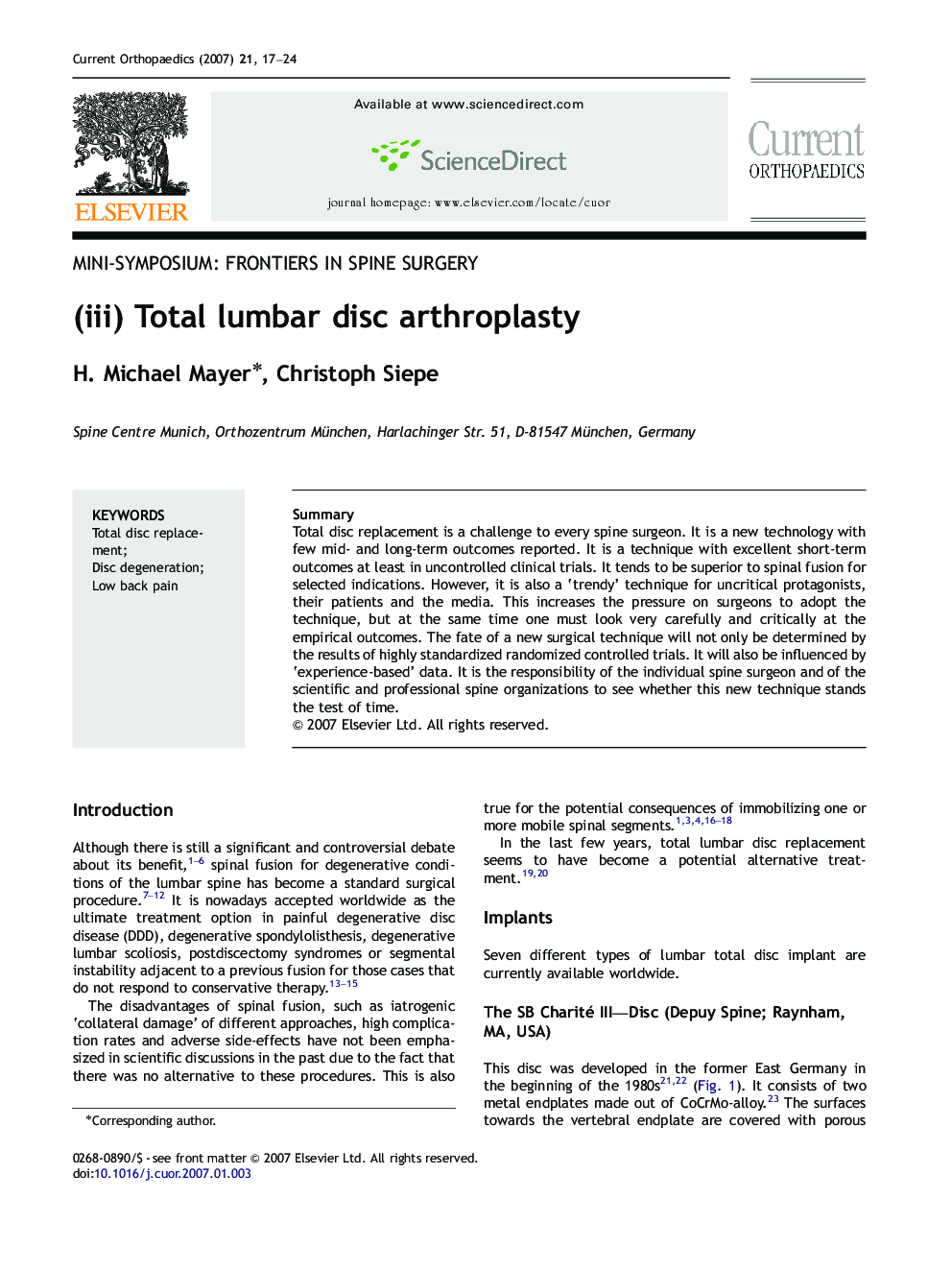| Article ID | Journal | Published Year | Pages | File Type |
|---|---|---|---|---|
| 4052916 | Current Orthopaedics | 2007 | 8 Pages |
Abstract
Total disc replacement is a challenge to every spine surgeon. It is a new technology with few mid- and long-term outcomes reported. It is a technique with excellent short-term outcomes at least in uncontrolled clinical trials. It tends to be superior to spinal fusion for selected indications. However, it is also a 'trendy' technique for uncritical protagonists, their patients and the media. This increases the pressure on surgeons to adopt the technique, but at the same time one must look very carefully and critically at the empirical outcomes. The fate of a new surgical technique will not only be determined by the results of highly standardized randomized controlled trials. It will also be influenced by 'experience-based' data. It is the responsibility of the individual spine surgeon and of the scientific and professional spine organizations to see whether this new technique stands the test of time.
Related Topics
Health Sciences
Medicine and Dentistry
Orthopedics, Sports Medicine and Rehabilitation
Authors
H. Michael Mayer, Christoph Siepe,
